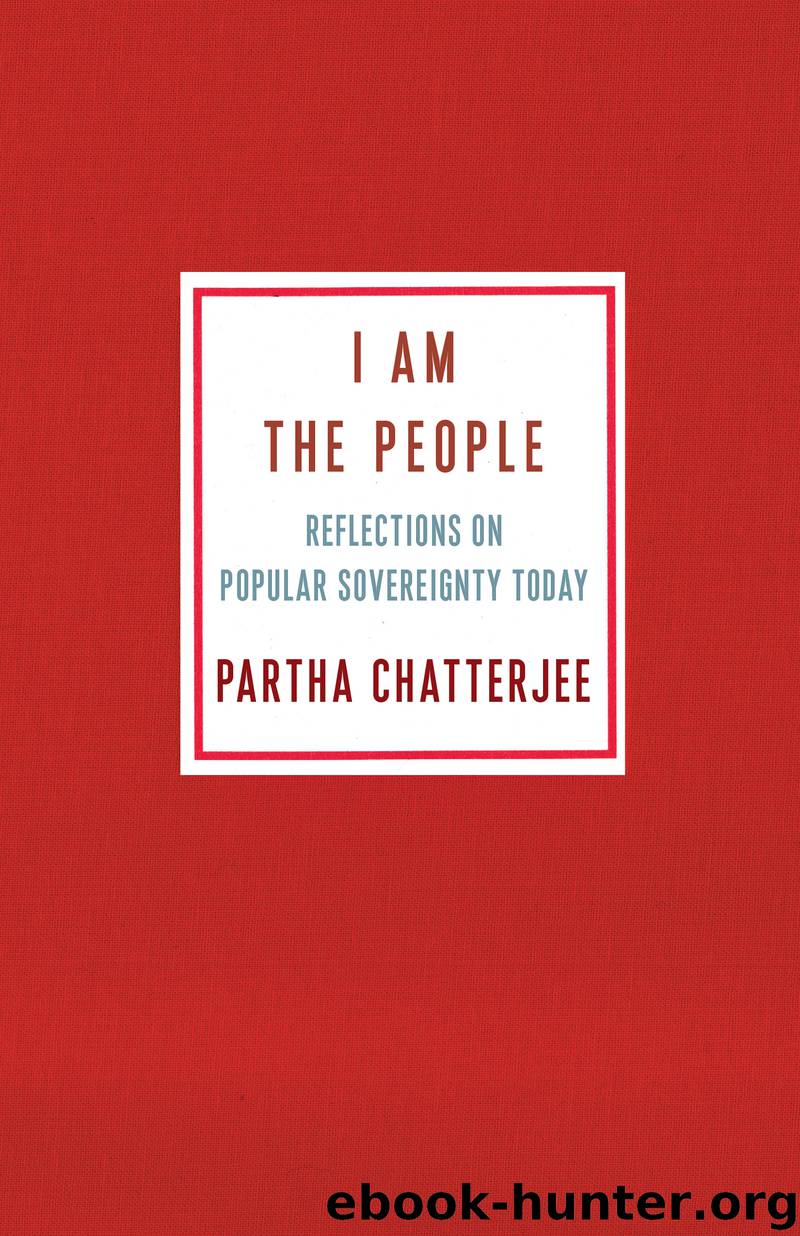I Am the People by Partha Chatterjee

Author:Partha Chatterjee
Language: eng
Format: epub
Publisher: Columbia University Press
Indira Gandhi’s Populism
Indira Gandhi was brought into power in 1966 by a group of Congress Party leaders who were entrenched party bosses in various states. She consolidated her power after 1969 by splitting the party, reaching out directly for popular support through slogans aimed at the poor, and reducing the strongmen to a minority wing of the Congress. Her populist stance combined such apparently socialistic programs as the nationalization of banks and mines and the abolition of the compensation paid to former rulers of the princely states with an agrarian strategy of “green revolution” based on providing state support to large landowners. At the same time, she also launched schemes of poverty removal targeting specific groups, such as scheduled castes and tribes, minorities, workers, and women, to be delivered by bureaucratic functionaries as gifts from the benevolent leader, bypassing the powerful local elites who were described as oppressors who had so long denied those benefits from reaching the poor.
Indira Gandhi’s populism produced a highly centralized structure of power focused on herself as the supreme leader and dependent largely on a politicized bureaucracy for its functioning, abolishing the erstwhile federal character of the Congress Party run through strong chief ministers in the states. The developmental strategy of the era of Jawaharlal Nehru, with large public undertakings in the capital goods and infrastructure sectors and private capitalists in the consumer goods sector, was repackaged through the employment of a new rhetoric of state socialism, with the central executive structures of government playing the leading role.
These tendencies took the extreme form of the state of emergency in 1975–1977, when, in the context of a growing opposition movement through which the Gandhian leader Jayaprakash Narayan was trying to bring together all opposition parties, an adverse court judgment raised the possibility of Indira Gandhi being removed from office. She suspended the normal functioning of electoral democracy and the rights of assembly and speech, put large numbers of opposition leaders and activists in prison, imposed censorship on the press, and announced a twenty-point program that included liquidation of rural indebtedness; abolition of bonded labor; socialization of urban land; and special benefits to agricultural workers, weavers, students, and “weaker sections.” In actual fact, the emergency gave unbridled power to officials and Congress politicians, who used it in an arbitrary and frequently violent manner.16 At this point India seemed to have fallen into the trajectory followed by authoritarian regimes in several Third World countries.
Indira Gandhi’s populism of the 1970s set a few trends. First, it established a form of state populism in which power was centralized in a single leader, no alternative leadership was allowed to emerge within the ruling party, and benefit schemes were implemented through a politicized bureaucracy. Second, the personality of the leader was projected through the state and party media as a benevolent protector of the poor and the underprivileged. In this Indira Gandhi was often characterized by commentators as a Bonapartist leader, standing above partisan, factional, and regional interests.17 Third, despite the apparently
Download
This site does not store any files on its server. We only index and link to content provided by other sites. Please contact the content providers to delete copyright contents if any and email us, we'll remove relevant links or contents immediately.
The Secret History by Donna Tartt(19023)
The Social Justice Warrior Handbook by Lisa De Pasquale(12182)
Thirteen Reasons Why by Jay Asher(8882)
This Is How You Lose Her by Junot Diaz(6869)
Weapons of Math Destruction by Cathy O'Neil(6260)
Zero to One by Peter Thiel(5782)
Beartown by Fredrik Backman(5729)
The Myth of the Strong Leader by Archie Brown(5491)
The Fire Next Time by James Baldwin(5422)
How Democracies Die by Steven Levitsky & Daniel Ziblatt(5209)
Promise Me, Dad by Joe Biden(5139)
Stone's Rules by Roger Stone(5078)
A Higher Loyalty: Truth, Lies, and Leadership by James Comey(4945)
100 Deadly Skills by Clint Emerson(4910)
Rise and Kill First by Ronen Bergman(4772)
Secrecy World by Jake Bernstein(4736)
The David Icke Guide to the Global Conspiracy (and how to end it) by David Icke(4696)
The Farm by Tom Rob Smith(4500)
The Doomsday Machine by Daniel Ellsberg(4480)
